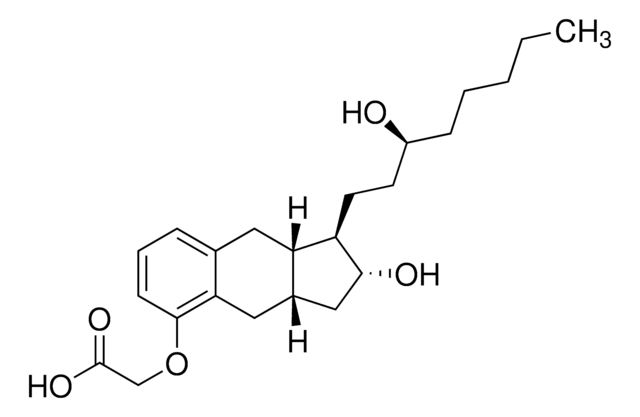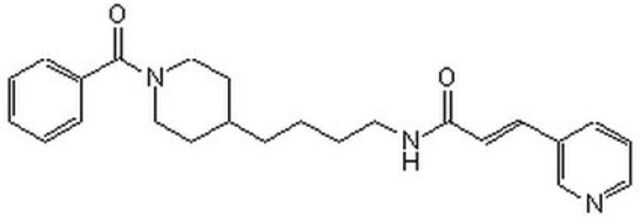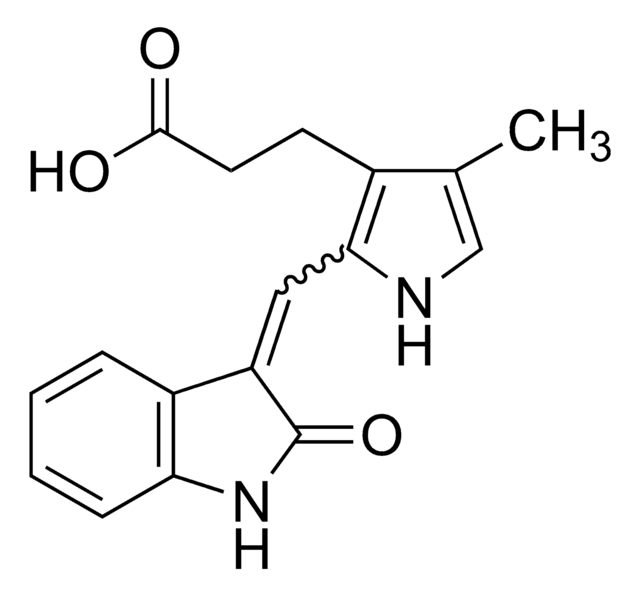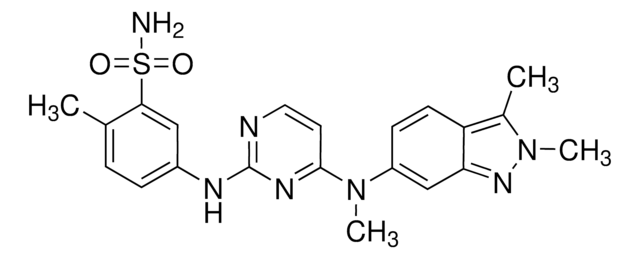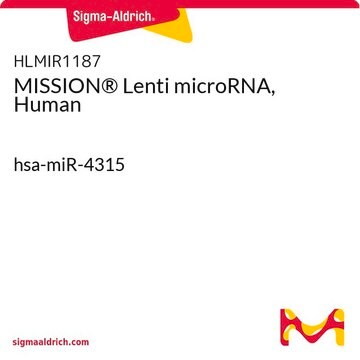S8442
SU 5416
≥98% (HPLC), powder, neuronal nitric oxide synthase inhibitor
Synonym(s):
1,3-Dihydro-3-[(3,5-dimethyl-1H-pyrrol-2-yl)methylene]-2H-indol-2-one
About This Item
Recommended Products
Product Name
SU 5416, ≥98% (HPLC)
Quality Level
Assay
≥98% (HPLC)
form
powder
color
yellow to yellow-orange
mp
221-222 °C
solubility
DMSO: 20 mg/mL, clear (warmed)
H2O: insoluble
storage temp.
−20°C
SMILES string
Cc1cc(C)c(C=C2C(=O)Nc3ccccc23)[nH]1
InChI
1S/C15H14N2O/c1-9-7-10(2)16-14(9)8-12-11-5-3-4-6-13(11)17-15(12)18/h3-8,16H,1-2H3,(H,17,18)/b12-8+
InChI key
WUWDLXZGHZSWQZ-XYOKQWHBSA-N
Gene Information
human ... EGFR(1956) , FLT1(2321) , IGFBP1(3484) , IL2(3558) , KDR(3791) , PDGFRB(5159)
mouse ... Flt1(14254) , Kdr(16542)
General description
Application
Biochem/physiol Actions
Features and Benefits
Storage Class Code
11 - Combustible Solids
WGK
WGK 3
Personal Protective Equipment
Choose from one of the most recent versions:
Already Own This Product?
Find documentation for the products that you have recently purchased in the Document Library.
Customers Also Viewed
Our team of scientists has experience in all areas of research including Life Science, Material Science, Chemical Synthesis, Chromatography, Analytical and many others.
Contact Technical Service









